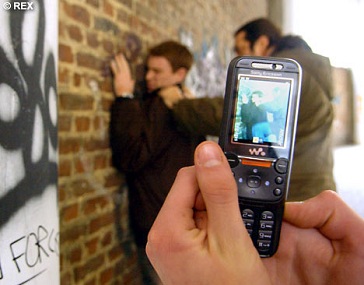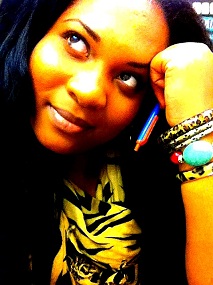 An ugly thing happened to a middle schooler that I know.
An ugly thing happened to a middle schooler that I know.
A friend-upset by something she thought my buddy had
done-started a viral text stating that my buddy is gay. This rumor happens to
be untrue. Of course, the incident was traumatizing, particularly since my
buddy didn't even own a cell phone at the time. So she learned of the incident
in the troughs of the cafeteria lunch busyness. What was interesting, though,
was that dozens of students took a stand by going to the school administration.
Clearly moved by a mass auditorium symposium on cyberbullying (which, indeed,
includes unwanted SMS harassment) the students put the culprit on blast. Both
girls were called into the office. The situation was squashed peaceably.
Similarly, last Fall my library student assistant was at the choice fodder for a popular anonymous campus gossip site. I only learned of the site when the young lady came to work distraught. She felt hopeless against how far the site had gone to paint a picture of her character. Her privacy was invaded and, what's more, her private life was exaggerated, by all accounts. Eventually, campus administrators investigated the anonymous site. The heat having been turned on, the cowardly blogger shut down the site.
Cyberbullying hurts. So much so that students like Tyler
Clementi jumped to his death from the George Washington bridge last May.
Tyler's roommate videotaped him engaging in sexual acts with his partner but
didn't stop there; the roommate uploaded the content to the web. Tyler had not
come out to his family and friends.
Cyberbullying is senseless. Take Megan Meier whose suicide made national headlines after it was uncovered that her frenemy's mom used Myspace to pose as a love interest, a said "Josh Evans," and feigned a harsh break up with Megan. Megan hanged herself on October 17, 2006.
Cyberbullying is when people leave disgusting rants on blog comment boards. Cyberbullying is when folks engage in prejudiced banters through Facebook and Twitter feeds. Cyberbullying is not just spreading sexted pictures, but even merely glancing at them out of curiosity. Yes, bystanders welcome mats to bullies.
 Cyberbullies are cavalier only when pecking away at their
keyboards or phone pads.
Cyberbullies are cavalier only when pecking away at their
keyboards or phone pads.
Cyberbullies find chutzpah in the blanket of isolation that the virtual world provides.
Cyberbullies are cowards who manipulate technology when they're too weak to reasonably deal with matters face to face.
It's time we took a collective stance against this mayhem. Let's challenge one another to speak to teenagers about avoiding cyberbullying. Let's unfriend or unfollow people who cross the line of decency. More importantly, let's gauge our own digital personas. Measure your temperature as a believer; are you filled with rage? In light of this age where speaking one's mind and being "real" matters more than gentleness, does making your point or putting some on blast matter to you more than how your audience-or even target--will feel about it? Do our entertainment choices and social media habits reflect our zero tolerance for bullying or violence or of all manners?
After all, "blessed are the peacemakers for they will be called children of God." (Matthew 5:9)
 Ana Valeska is a
not-so-naughty librarian, college instructor, book editor and--yeah,baby--NEWD
columnist. Her forthcoming work, Tu Eres (You Are), is a devotional
based on modern-day worship psalms. Ana Valeska longs to help
redeem urban, young adult culture for the Lord Jesus. Her
daughter, Selena, and cat, Puffles, have her wrapped around their little
fingers.
Ana Valeska is a
not-so-naughty librarian, college instructor, book editor and--yeah,baby--NEWD
columnist. Her forthcoming work, Tu Eres (You Are), is a devotional
based on modern-day worship psalms. Ana Valeska longs to help
redeem urban, young adult culture for the Lord Jesus. Her
daughter, Selena, and cat, Puffles, have her wrapped around their little
fingers.

